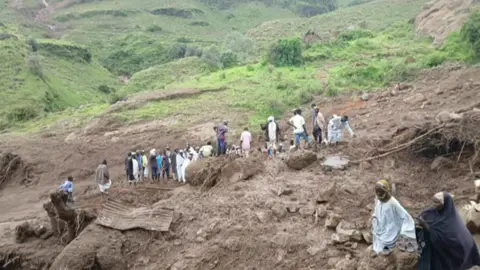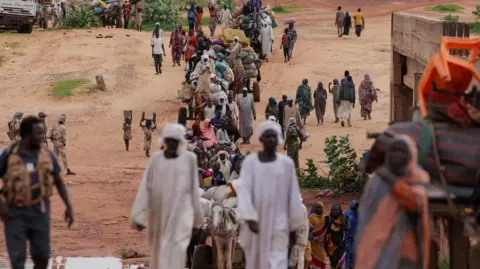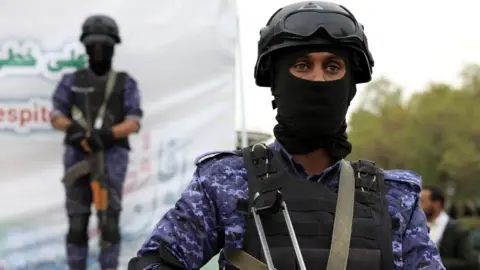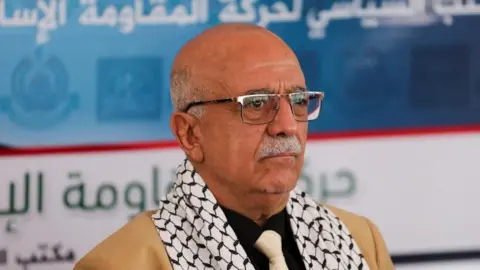Fanta Ali Ahmed, 32, a survivor from the Tigray region, recalled the chaos and destruction that unfolded when bombs were released over the detention center where he and many others were held. Trapped in an environment of fear and uncertainty, he expressed deep confusion and devastation, recounting the brutal aftermath: "The place and everyone in it were mangled."
The incident occurred on April 28, 2025, when multiple 250-pound bombs tore through the facility, killing ten individuals located near Fanta. Many other survivors were left suffering from horrific injuries, with no explanation provided as to why a U.S. military operation targeted a location housing vulnerable migrants.
As they attempt to rebuild their lives in the aftermath, Fanta and others feel abandoned by both local officials and U.S. authorities. They demand accountability for the destruction wrought upon their lives and hope for international recognition of their plight.
The United Nations earlier reported that more than 60,000 migrants from the Horn of Africa had reached Yemen in 2024, many seeking refuge and stability in Gulf states. However, increasing violence and conflict in the region, exacerbated by international interventions and local military operations, continues to endanger migrants.
This tragic bombing underscores larger issues of global migration, war-related violence, and the responsibility of military powers like the United States in foreign nations where innocent lives are invariably affected. As survivors struggle to comprehend their new reality, questions about the ethics of such military actions and their consequences linger.
The plight of migrants, often caught in the crossfire of geopolitical tensions, compels a re-evaluation of international humanitarian policies and practices to protect those fleeing violence—before they become victims of it again.
The incident occurred on April 28, 2025, when multiple 250-pound bombs tore through the facility, killing ten individuals located near Fanta. Many other survivors were left suffering from horrific injuries, with no explanation provided as to why a U.S. military operation targeted a location housing vulnerable migrants.
As they attempt to rebuild their lives in the aftermath, Fanta and others feel abandoned by both local officials and U.S. authorities. They demand accountability for the destruction wrought upon their lives and hope for international recognition of their plight.
The United Nations earlier reported that more than 60,000 migrants from the Horn of Africa had reached Yemen in 2024, many seeking refuge and stability in Gulf states. However, increasing violence and conflict in the region, exacerbated by international interventions and local military operations, continues to endanger migrants.
This tragic bombing underscores larger issues of global migration, war-related violence, and the responsibility of military powers like the United States in foreign nations where innocent lives are invariably affected. As survivors struggle to comprehend their new reality, questions about the ethics of such military actions and their consequences linger.
The plight of migrants, often caught in the crossfire of geopolitical tensions, compels a re-evaluation of international humanitarian policies and practices to protect those fleeing violence—before they become victims of it again.
















